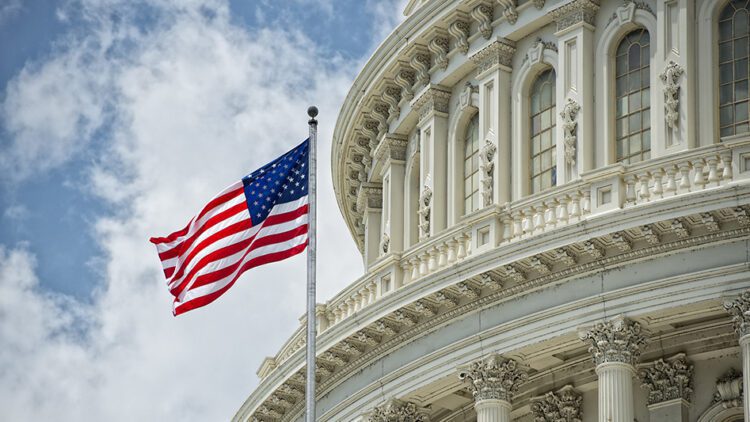A coalition of 31 bipartisan members of the House have dispatched a letter to Anne Milgram, head of the DEA, on October 27. They stressed the critical nature of reevaluating cannabis’s status under federal law, viewing this as an integral part of efforts to halt the longstanding and unequal federal ban on cannabis.
This communication, endorsed by leaders such as Reps. Earl Blumenauer, D-Ore., Dave Joyce, R-Ohio, Barbara Lee, D-Calif., and Brian Mast, R-Fla., urges the DEA to acknowledge the advantages of completely removing cannabis from the federal scheduling system and to collaborate with lawmakers to make this a reality.
The signatories assert that the persisting federal interdiction of cannabis does not align with the sentiments of the majority of American voters and insist that the DEA’s policies should mirror this changing public consensus.
The representatives highlight that the legislative branch is crafting a sweeping bill to legalize cannabis at the federal level, following in the footsteps of the 23 states that have enacted laws for adult recreational use and the 39 states with medicinal cannabis programs.
Specifically, the correspondence spotlights the Marijuana Opportunity Reinvestment and Expungement (MORE) Act, which the House passed twice. This act aims to strike cannabis from the Controlled Substances Act, clear past cannabis-related convictions, and introduce a federal tax on cannabis sales to fund initiatives aiding those disproportionately affected by drug law enforcement.
The letter underscores additional legislative proposals from House Republicans and Senate Democrats that share the objective of federal cannabis legalization. Recently, Rep. Nancy Mace, R-S.C., proposed a bill to legalize cannabis on a federal level, which builds on the States Reform Act introduced in November 2021.
In October of the previous year, President Joe Biden initiated an official examination of cannabis’s classification under the CSA. Following this, the Department of Health and Human Services suggested reassigning cannabis as a Schedule III substance in August.
The group of lawmakers emphasized in their recent message that while reclassifying marijuana as Schedule III marks progress, it is insufficient to amend the errors of its prohibition or to substantially reconcile the discord between federal and state cannabis policies.
The federal government, they argue, must address this flawed prohibition and the continual criminalization of cannabis activities that are legal under state laws. Such a move would not only generate lawful employment but would also ensure public safety and respect the autonomy of states in regulating cannabis cultivation, taxation, and distribution.
Representative Blumenauer, founder of the Congressional Cannabis Caucus, has announced he will not seek reelection come 2024, despite his long-standing advocacy for cannabis reform dating back over five decades in public service.
The signatories of the letter are adamant that while they work to pass comprehensive cannabis legalization legislation, the DEA must be guided by the urgency of completely removing cannabis from federal scheduling, with a focus on promoting public safety rather than continuing needless criminalization.
They conclude by asserting that the DEA’s current stance on cannabis scheduling is antiquated and disconnected from public opinion, eagerly awaiting a cooperative response from the DEA on this critical matter.
OTHER NEWS: DEA Announces Regulations for Synthetic Cannabinoids









